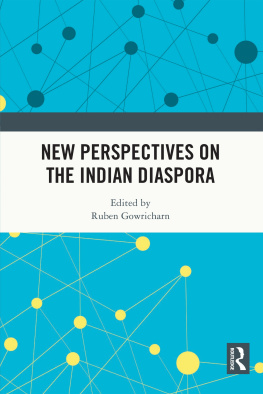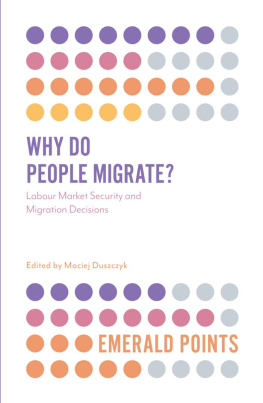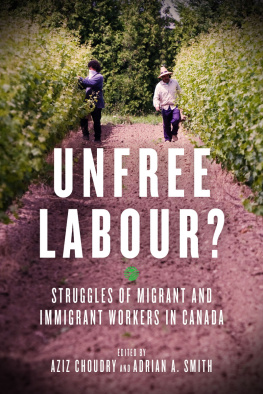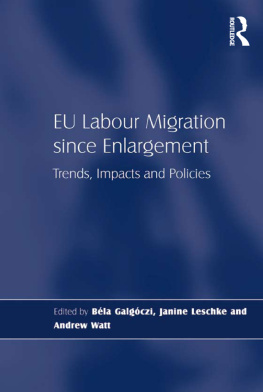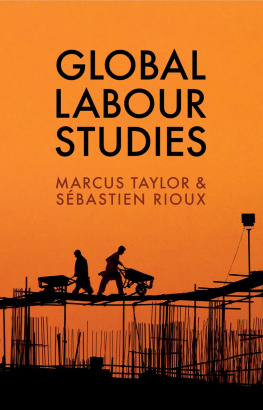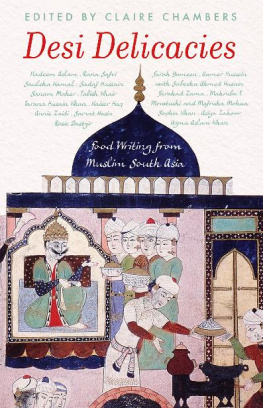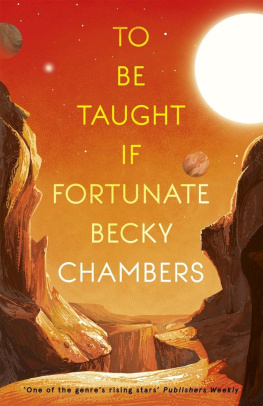Networks, Labour and Migration among Indian Muslim Artisans
ECONOMIC EXPOSURES IN ASIA
Series Editor:
Rebecca M. Empson, Department of Anthropology, UCL
Economic change in Asia often exceeds received models and expectations, leading to unexpected outcomes and experiences of rapid growth and sudden decline. This series seeks to capture this diversity. It places an emphasis on how people engage with volatility and flux as an omnipresent characteristic of life, and not necessarily as a passing phase. Shedding light on economic and political futures in the making, it also draws attention to the diverse ethical projects and strategies that flourish in such spaces of change.
The series publishes monographs and edited volumes that engage from a theoretical perspective with this new era of economic flux, exploring how current transformations come to shape and are being shaped by people in particular ways.
First published in 2020 by
UCL Press
University College London
Gower Street
London WC1E 6BT
Available to download free: www.uclpress.co.uk
Text Thomas Chambers, 2020
Images Thomas Chambers, 2020
Thomas Chambers has asserted his right under the Copyright, Designs and Patents Act 1988 to be identified as author of this work.
A CIP catalogue record for this book is available from The British Library.
This book is published under a Creative Commons 4.0 International licence (CC BY 4.0). This licence allows you to share, copy, distribute and transmit the work, to adapt the work, and to make commercial use of the work, provided attribution is made to the authors (but not in any way that suggests that they endorse you or your use of the work). Attribution should include the following information:
Chambers, T. 2020. Networks, Labour and Migration among Indian Muslim Artisans. London, UCL Press. https://doi.org/10.14324/111.9781787354531
Further details about Creative Commons licences are available at http://creativecommons.org/licenses/
ISBN: 978-1-78735-455-5 (Hbk)
ISBN: 978-1-78735-454-8 (Pbk)
ISBN: 978-1-78735-453-1 (PDF)
ISBN: 978-1-78735-456-2 (epub)
ISBN: 978-1-78735-457-9 (mobi)
DOI: https://doi.org/10.14324/111.9781787354531
All figures are owned and provided by the author.
There are so many individuals who have contributed to this book in various ways over the years, too many to list everyone. First and foremost, however, I would like to make a heartfelt acknowledgement to my PhD supervisors, Geert De Neve and Filippo Osella, who shepherded me through the thesis which forms the underlying skeleton of much of this book. Both their voices are present in these pages at various moments and they have continued to offer me advice and mentoring since. Magnus Marsden has also provided a great deal of advice and support over the years for which I am extremely grateful. Many other colleagues at the University of Sussex have offered comments, input and broader support including Suhas Basme, Grace Carswell, Erica Consterdine, Syed Mohammed Faisal, Adam Fishwick, Diana Ibanez-Tirado, Ole Kaland, Katie McQuaid, Rebecca Prentice and Ross Wignall. My current employer, Oxford Brookes University, provided time and space for the completion of the book, Louella Matsunaga being particularly deft in helping me to balance writing time with other duties.
Beyond direct colleagues, there are many other scholars who have offered comments and support with the book, or with other publications and material, some of which is included in these chapters. Patricia Jeffery has been a wonderful guide and mentor at various stages and Shalini Grover has been an ever-present supporter of this and other projects. Alessandra Mezzadri, Madeline Reeves, Nandini Gooptu, Anita Hammer, Vegard Iversen, Nayanika Mathur and Ursula Rao have all offered support and encouragement. At UCL Press, Chris Penfold and Rebecca Empson have been patient and encouraging throughout the journey to publication, and Glynis Baguley has provided meticulous copyediting. There are, inevitably, many others but I hope I may be forgiven for not including everyone here. Critical among broader contributions has been the wonderful work of my research assistant Ayesha Ansari, who opened doors to spaces within Saharanpur where my male gender identity made access difficult. There are substantial sections of this book impossible to produce without her help.
A project of this scale takes an emotional and psychological toll, one that I would not have been able to bear had it not been for various forms of personal support from friends and relatives. My mother has been relentlessly caring and, as a sociologist, has offered comments, encouragement and critical help with proofreading. My father has always been willing to listen when called upon and his encouragement to persevere through more difficult periods of the writing process has been essential. I have been very fortunate to have the love and care of my wonderful wife, Joanna Patterson, throughout, as well as gentle encouragement from the impending birth of our future son, whose nearing presence has pushed me to reach completion. Many friends from home have kept me going including Michel Dennington, Sarah Robinson, Nicholas Wride and Kate Staniforth. In India, my old and very dear friend Sandeep Arya was always on hand throughout fieldwork to offer respite and a stiff drink. Critical here were my dear friends and language teachers Mohammad Yusef and Abdul Nasir, who were central in helping me understand the context in which I would eventually work.
Finally, the deepest of all thanks must go to my many friends in Saharanpur who opened their lives, hearts and homes to me. In the interests of anonymity, I do not name them here, but they all feature in this book at various moments under pseudonyms. Many are friends for life and our ongoing relationships, both when I return to the city and via various communications media from the UK, are an endless source of warmth, pleasure and companionship.
A portion of the material presented in this book formed part of doctoral research undertaken thanks to an ESRC Studentship Grant (ES/I900934/1), held at the University of Sussex. Some additional material results from research funded by a British Academy and Leverhulme Grant (SG151257) (held by Geert De Neve and Grace Carswell at Sussex) and from the support of Early Career Funding allocated to me by Oxford Brookes University.
Map locating Saharanpur, Uttar Pradesh and neighbouring states. Source: Martin Brown.
Marginalisation, connectedness and Indian Muslim artisans: an introduction

It was a late afternoon in November 2010 when I first visited Kamil Wali Gully (lane), in the small provincial city of Saharanpur, located in north-western Uttar Pradesh (India). Following one of the heavily laden buffalo carts that had started out from the wood wholesale markets on the outskirts of the city, I turned into the entrance of a narrow, roughly metalled lane. Hitting a pothole, the cart lurched heavily, its precarious load looking briefly as if it might spill, but then recovered its centre and continued on. The gully was, like so many in the city, filled with the sound of constant tapping from the chisels and hammers of carvers and carpenters. This was layered against the drone of cutting and buffing machines that threw up noise and sawdust. The woodworking mohallas (neighbourhoods) were in the Muslim areas of the city and most of the labour force was drawn from this community. Thus, the gullies were occasionally interspersed with masjids (mosques) from which the call to prayer provided the only cessation to the otherwise continuous soundscape of production.





